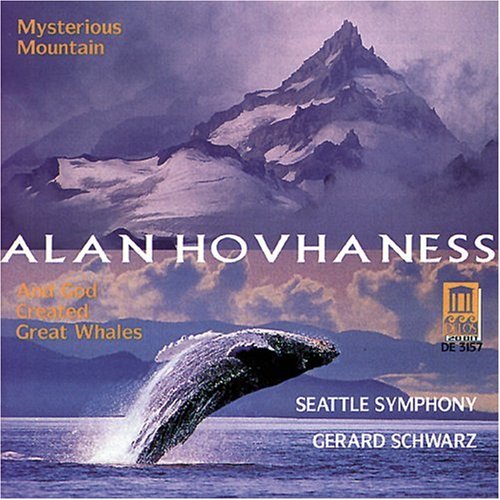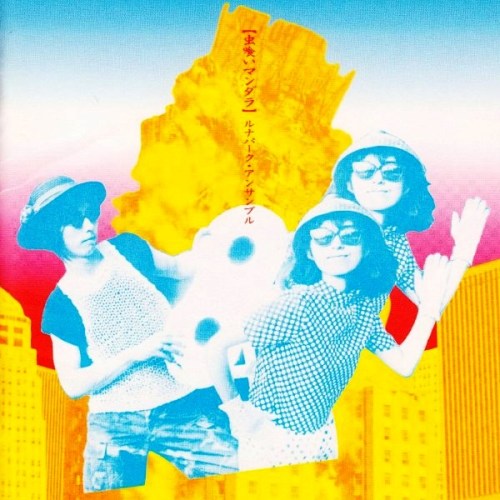 1973; 7 tracks
1973; 7 tracks
Leonard Bernstein / New York PhilharmonicBorn in Cheltenham, England, on September 21, 1874 (the autumnal equinox and the first day of the ancient Egyptian New Year),
Gustav Holst was a Virgo (The Hermit; an Earth Sign) and possessed of a decided propensity to Idealism and Truth. Young Holst neither drank nor smoked. He was a strict vegetarian, often subsisting on dried nuts. He was completely single-minded about everything. Naïve and idealistic, he abhorred profanity, never lost his temper, and was shy and solitary. He was a Mystic and obscurantist, more at ease in the silence of the library than the drawing room. He became immersed in the Hindu epics and learned Sanskrit in order to read them in their original texts. He would always maintain his belief in "Dharma" - one's natural path in life. For Holst, the search for Wisdom became more important than the search for Beauty. Holst surrendered completely to involvement: When he worked, he overworked, and his delicate healthy offered little reserve capacity. Invariably, he was forced to recuperate from nervous and physical exhaustion. Understandably, for an Englishman, he adored warm climates and, whenever time and fortune would permit, he traveled to the Middle East, North Africa and the Mediterranean. He once decided to go to Algeria, to recuperate by riding his bicycle in the desert. This absurdity is matched only by the fact that he actually did so.
Even in old age, Holst pursued the course of gathering information on everything. He read incessantly. Simple events became highly significant to him. In 1934, at the age of 60, he died: The cause, bleeding ulcers. His most valued possessions were Beethoven's tuning fork and his master key to St. Paul's music school. He was surrounded by the countless books he indiscriminately devoured: Jane Austen and Leon Trotsky lay side by side.
--
His mother was a piano teacher, and his father was determined that Gustav become a musician. So he studied. By the age of 18, his impact upon was limited to appointment as a village organist. By 20, his first major compositions were already performed. Encouraged, he applied for a scholarship at the Royal College of Music. He tested eight successive times before he finally succeeded. Frequently, he was unable to even hold a pen: His hand became so crippled from neuritis that he devised a special pen nip, fitted to his finger, so that he could notate his compositions. In 1903, he began teaching music, eventually becoming music director at Morley College and at St. Paul's Girl's School - the only positions that he truly loved and that he held until his death. Students loved him.
By 1908, he had already experimented with two operas based upon the Hindu writings that so fascinated him. He became a fairly prolific composer, who preferred writing for the voice - thus, he left considerable choral music, operas and songs. He achieved slow but steady recognition, and, with this increasing fame, came relative financial stability. He also became well-regarded as a conductor. However, aside from a small coterie of friends and well-wishers, Holst's reputation grew without creating any real general enthusiasm. But them, he was very, very susprivious of too much recognition. When people asked for his autograph, he would hand them a typed slip of paper that stated that he didn't give autographs.
Interested in eternity, Holst studied astrology and learned to cast horoscopes. He also studied astronomy, and learned computation of light-years in order to understand the Space-Time continuum. His composition
The Planets became the most popular and enduring example of his mystical mindplay. Listening to the relentless, threatening, mecahincal march that opens "Mars, The Bringer of War," audiences were sure this was Holst's personal statement about World War I. (After all, the horror was so fresh.) But Holst never heard a machine gun. In fact, he had finished the sketch for "Mars" just before the war - in 1914. A friend gifted him with a semi-private performance of the work, on September 28, 1918, by the London Symphony Orchestra. The effect upon the small audience was intense - and in the halls, during the playing of "Jupiter, the Bringer of Jollity," char-women were said to have set aside their scrubbing to dance with each other.
The Planets requires large orchestral forces, and its wordless chorus adds further dimension. It made Holst famous, and, by 1921, he was internationally known. The work is cast into seven musical sections. Each is a self-contained tone poem. While not exactly elaborate program music, each section does convey an easy means for dreaming along somewhat prescribed paths. The titles are Holst's own.
Download.






















